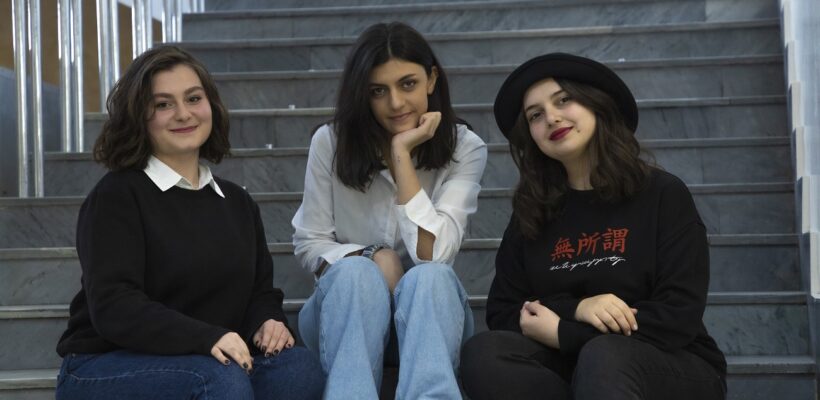
AUA Students Engage in Research
3 min readYEREVAN, Armenia — The American University of Armenia (AUA) recently conducted a large-scale survey in collaboration with research teams across six European countries. The survey compares public perceptions of national governments, the Covid-19 pandemic, attitudes toward climate change, and opinions about institutions involved in tackling climate change in Armenia, Germany, Ireland, Italy, Norway, Poland, and the United Kingdom.
Three undergraduate students, Ani Jinanyan (BAPG ’25), Gayane Manukyan (BAPG ’25), and Gohar Geghamyan (BAPG ’25) from the Bachelor of Arts in Politics and Governance (BAPG) program were involved in the data analysis phase of the survey. More specifically, their task was to work with the Armenia survey database and perform basic comparative analyses of assigned sub-topics, as well as explore correlation with age and gender differences based on responses. Under the supervision of more experienced team members, the students worked on visualizing and interpreting the survey results.
“I was very interested in research during my classes, but the practical experience helped me understand that I would love to continue my career in that direction. The topic of the research is also highly relevant. More projects like this would be extremely beneficial for our personal and professional development,” says Gohar.
In her turn, Gayane remarks, “I became interested in research during my studies and the project made me even more interested and eager to plan a career in that path. It was challenging and insightful to gain hands-on experience in data analysis since we were doing things we had never done before.”
Student engagement in research is vital to the academic and personal growth of BAPG students. This aligns with the program’s goal of teaching analytical skills necessary for evaluating conflicting arguments, gathering and presenting relevant evidence, and reaching reasoned conclusions. Students’ understanding and hands-on experience with the entire research process, including data analysis, visualization and interpretation are consistent with BAPG’s strong emphasis on research throughout the program starting from the first semester.
“I am so glad our professors trusted us with this project. We have been introduced to research tools that will undoubtedly have ample practical utility in our careers. It was very inspiring to take part in discussions where we were asked to provide feedback and insights into the project; they trusted us, and we are glad we carried through,” says Ani.
BAPG program chair and a lead researcher, Dr. Yevgenya Paturyan, explains, “The BAPG curriculum is designed to equip students with a solid foundation for social science research. Some people think we are crazy to start teaching research methods in the first semester of the first year of our undergraduate program. That was a bold experiment on our part, but it seems to be successful. Students who only had one year of bachelor studies under their belt did well in a real research project because they already had two semesters of research methods. They were ready for the task. And they will get even better because they have the knowledge coupled with the curiosity. They share our excitement about research. I am very glad we could give them this extra-curricular opportunity.”
The survey is part of the EU-funded PERITIA project, which reviews the role of science in policy decision-making and the conditions under which people should trust and rely on expert opinion that shapes public policy. The project received funding from the European Union’s Horizon 2020 research and innovation program under grant agreement No 870883.
Founded in 1991, the American University of Armenia (AUA) is a private, independent university located in Yerevan, Armenia, affiliated with the University of California, and accredited by the WASC Senior College and University Commission in the United States. AUA provides local and international students with Western-style education through top-quality undergraduate, graduate, and certificate programs, promotes research and innovation, encourages civic engagement and community service, and fosters democratic values.
